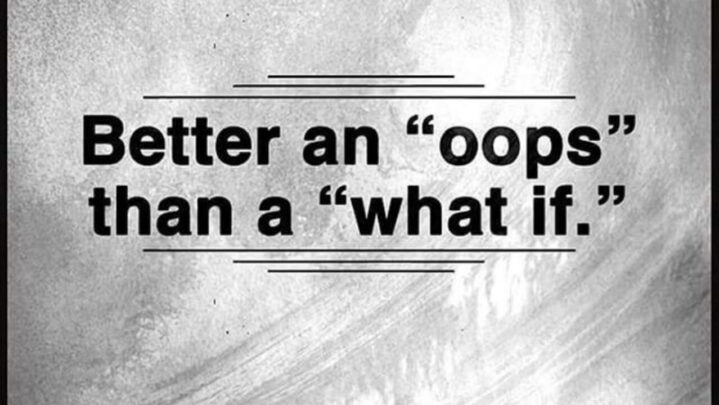It stresses the importance of taking action and being open to making mistakes, rather than being paralyzed by fear and uncertainty.
At the same time as we continuously ask ourselves “what if?” we’re essentially dealing with tension and uncertainty. We are continuously second-guessing ourselves and our alternatives, and we may even miss opportunities because of the truth we’re too afraid to take a chance. Alternatively, when we embrace the opportunity of making errors and take responsibility for those oops moments, we are able to take action with self-assurance and get to know from our research.
Of course, this is not to say that we ought to be reckless or not assume things. As an alternative, it takes a lot of effort to find a balance between being cautious and taking calculated dangers.
Moreover, while we accept that oops moments will show up, we are able to let go of the desire for perfection. Perfectionism may be a main roadblock to success and happiness, as it could result in procrastination, self-doubt, and in the end, a state of no activity. By embracing the opportunity of creating errors, we will detach ourselves from the pressure to be excellent and focus on progress instead of perfection.





